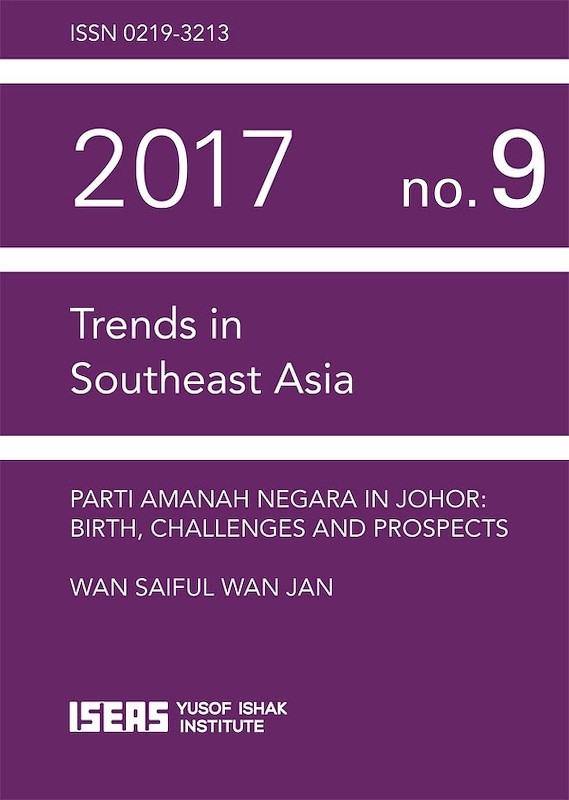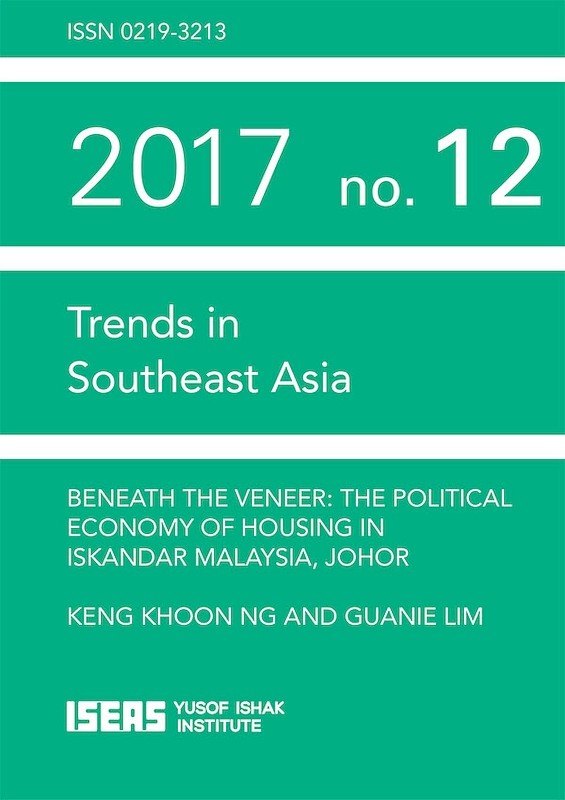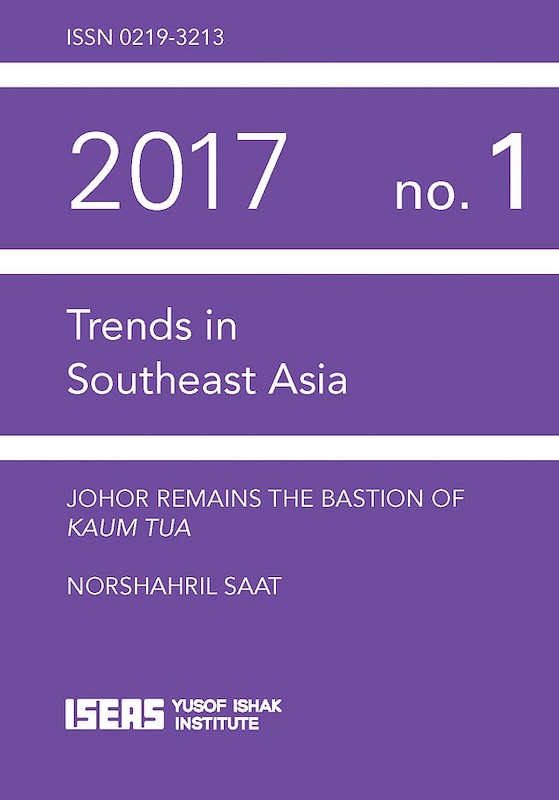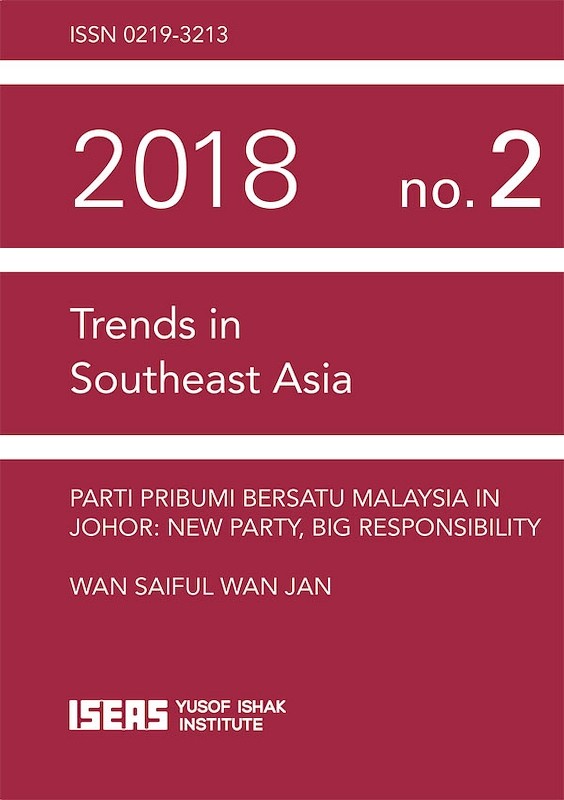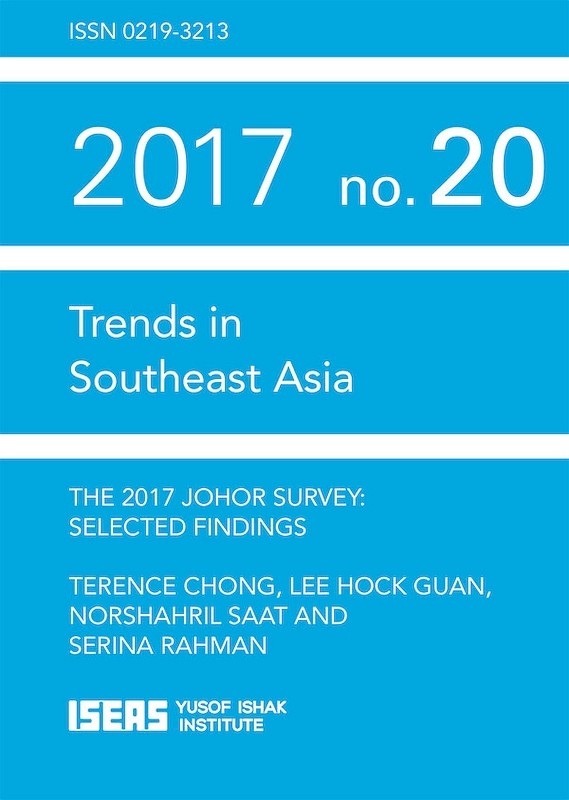Johor: Abode of Development?
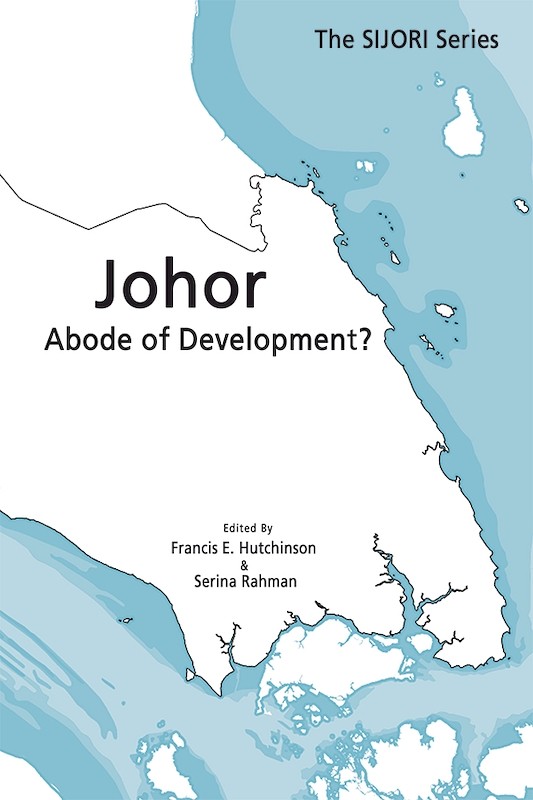
Date of publication:
2020
Publisher:
ISEAS – Yusof Ishak Institute
Number of pages:
539
Code:
PIC277
Soft Cover
ISBN: 9789814881272
Reviews
Daniel Moss, "Do Maps or Money Mark Singapore's Borders?" 25 Oct 2020.
Shaun Lin, https://onlinelibrary.wiley.com/doi/epdf/10.1111/sjtg.12394 Singapore Journal of Tropical Geography, 9 November 2021
"This book is a critical empirical contribution to the latest developments in maritime Southeast Asia, offering a timely stock take of Johor itself, its position within Malaysia, and its role concerning SIJORI. More importantly, the book offers previous perspectives on the near to mid future of Johor and SIJORI based on keenly observed current dynamics and sound historical understanding of Johor's place within Colonial and independent Malaya/Malaysia."
"This book stands out for its meticulous and critical investigation of historical and contemporary issues in/of Johor and succeeds in giving readers a more nuanced understanding of this state vis-à-vis Malaysia and SIJORI. It deserves to be widely read, especially informing politicians and developers in future SIJORI progress."
Sarah Moser, https://onlinelibrary.wiley.com/doi/epdf/10.1111/sjtg.12395 Singapore Journal of Tropical Geography, 9 November 2021
"...a timely contribution that investigates the wide variety of rapid changes occurring in Malaysia's third most populous state, and is second in a trilogy of edited collections that broadly examine members and dynamics of the Singapore-Johor-Riau (SIJORI) Growth Triangle..."
"The chapters are well researched and empirically rich, each providing excellent context for the reader to understand how Johor's current transformations continue to be shaped by colonial or even pre-colonial dynamics."
"Johor: Abode of Development? is required reading for anyone writing about contemporary Johor or Iskandar Malaysia. It is a data rich, readable, insightful and timely contribution that will be an excellent resource for researchers and policy makers and for future comparative work."
Sin Yee Koh, https://onlinelibrary.wiley.com/doi/epdf/10.1111/sjtg.12393 Singapore Journal of Tropical Geography, 25 March 2021
"...this book is a useful academic resource for researchers and students who are interested in regional studies and federal-state politics. It is also a useful reference resource for policymakers and the general audience who are interested in gaining a more in-depth analysis of selected economic, political, social and environmental issues that accompany the growth and development of the state of Johor. As a constituent part of the trilogy, it offers readers a more nuanced and contextualized understanding of the SIJORI region."
About the publication
In 1990, the Malaysian state of Johor—along with Singapore and the Indonesian island of Batam—launched the Growth Triangle to attract foreign direct investment. For Johor, this drive was very successful, transforming its economy and driving up income levels. Today, Johor is one of Malaysia’s “developed” states, housing large clusters of electrical and electronics, food processing, and furniture producing firms.
While welcome, this structural transformation has also entailed important challenges and strategic choices. After three decades, Johor’s manufacture-for-export model is under question, as it faces increasing competition and flat-lining technological capabilities. In response, the state has sought to diversify its economy through strategic investments in new, mostly service-based activities. Yet, Johor retains pockets of excellence in traditional sectors that also require support and policy attention.
The state’s economic transformation has also been accompanied by far-reaching political, social, and environmental change. Not least, Johor’s growing population has generated demand for affordable housing and put pressure on public services. The strain has been exacerbated by workers from other states and overseas. These demographic factors and large-scale projects have, in turn, put stress on the environment.
These economic and social changes have also had political ramifications. While Johor is a bastion of two of the country’s oldest and most established political parties, the state’s large, urban and connected electorate has made it hospitable terrain for new political organisations. Beyond electoral politics, Johor is also the home of a powerful and influential royal family, with very specific ideas about its role in the state’s political life.
Building on earlier work by the ISEAS – Yusof Ishak Institute on the Singapore-Johor-Riau Islands Cross-border Region, this book focuses on this important Malaysian state, as it deals with important domestic challenges on one hand and strives to engage with international markets on the other.
“I have always felt that there are many more complementarities possible between Singapore and Johor. This would be to the benefit of both economies, but the political division between the two was just too great. The two economies lived adjacent but separate lives—Singapore looking out to the world and Johor looking north—until initiatives such as the Iskandar Malaysia development corridor began to change things significantly. The concern now is that the pendulum may have swung too much the other way, driven by the huge income and price differentials as well as Singapore’s global city status. Francis and Serina’s compilation is a welcomed attempt at understanding Johor in a much more comprehensive manner; not just its changing economy but how its politics and society have been impacted by these changes—which is a more endogenized view of economic integration.”
— Dr Nungsari Ahmad Radhi, former MP Balik Pulau and Executive Director, Khazanah Nasional
“Drawing on the expertise of internationally known specialists, this insightful collection explores the multiple ways in which Johor’s economic development has influenced the contemporary political scene, and the effects on local society and the environment. Skillfully edited and meticulously researched, Johor: Abode of Development? is not merely required reading for anyone interested in contemporary Malaysia, but will be of immense value to historians of the future.”
—Barbara Watson Andaya, Professor of Asian Studies, University of Hawai’i
Contents
-
Johor: Abode of Development?
[Whole Publication, ISBN: 9789814881289], by Francis E Hutchinson, Serina Rahman, editors -
Preliminary pages
- INTRODUCTION
-
1. Situating Johor, by Francis E Hutchinson, author
- SECTION I: ECONOMICS
-
2. Agriculture in Johor: What’s Left?, by Geoffrey Kevin Pakiam, author
-
3. Johor’s Oil Palm Economy: Past, Present and Future, by Geoffrey Kevin Pakiam, Khor Yu Leng, Jeamme Chia, authors
-
4. Johor’s Oil and Gas Sector: The Pengerang Integrated Petroleum Complex and Its Implications, by Javier Revilla Diez , Serina Rahman, authors
-
5. The Private Healthcare Sector in Johor: Trends and Prospects, by Meghann Ormond, Lim Chee Han, authors
-
6. EduCity, Johor: Its Promise and Challenges, by Chang-Da Wan, Benedict Weerasena, authors
-
7. Tourism in Johor and Its Potential, by Serina Rahman, Goh Hong Ching, authors
- SECTION II: POLITICS
-
8. UMNO and Barisan Nasional in Johor: A Time-Bound Fixed Deposit?, by Francis E Hutchinson, author
-
9. Electoral Politics and the Malaysian Chinese Association in Johor, by Lee Hock Guan, Nicholas Chan, authors
-
10. Parti Pribumi Bersatu Malaysia in Johor: New Party, Big Responsibility, by Wan Saiful Wan Jan, author
-
11. Parti Amanah Negara in Johor: Birth, Challenges and Prospects, by Wan Saiful Wan Jan, author
-
12. The Johor Sultanate: Rise or Re-emergence? , by Francis E Hutchinson, Vandana Prakash Nair, authors
- SECTION III: SOCIAL AND ENVIRONMENTAL ISSUES
-
13. Foreign Workers in Johor: The Dependency Dilemma, by Benedict Weerasena, author
-
14. Johor Remains as the Bastion of Kaum Tua, by Norshahril Saat, author
-
15. Johor Bahru’s Urban Transformation: Authority and Agency Revisited, by Keng Khoon Ng, author
-
16. Housing Policy in Johor: Trends and Prospects, by Guanie Lim, Keng Khoon Ng, authors
-
17. Johor’s Forest City Faces Critical Challenges, by Serina Rahman, author
-
18. The Struggle for Balance: Johor’s Environmental Issues, Overlaps and Future , by Serina Rahman, author
- CONCLUSION
-
19. Johor: Abode of Development?, by Serina Rahman, Francis E Hutchinson, authors
- APPENDIX
-
Sources for the Johor Maps , by Hans Hortig, Karoline Kostka, authors
-
Index

